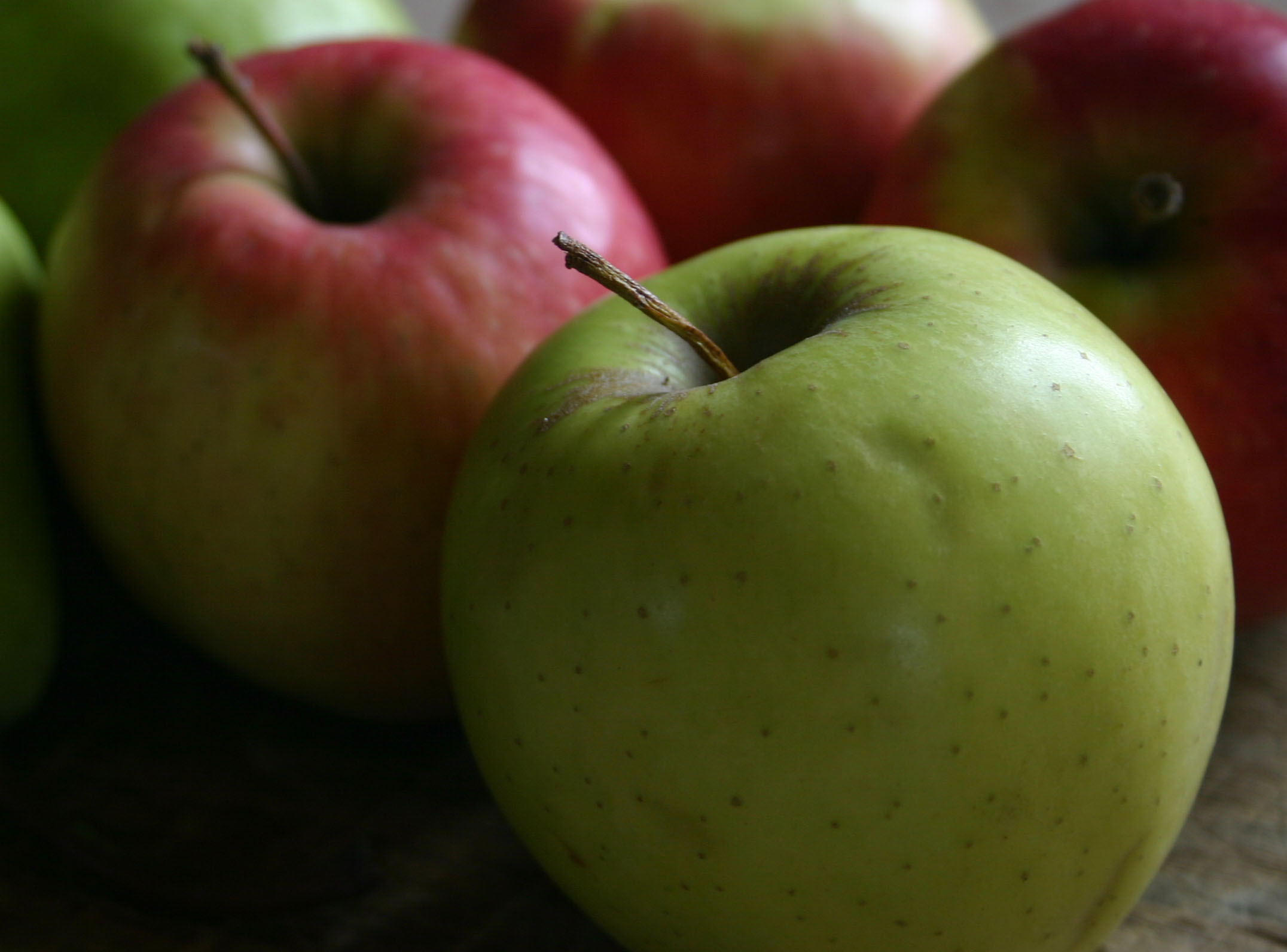Towards zero pesticide residues in Danish apples
Research shows that it is possible to reduce or eliminate pesticide residues in apples. The research results are now being tested in practice.

When you pick an apple from the fruit bowl, you are probably more likely to grab the one without brown scabs, worm holes or other blemishes. Because apples are exposed to many pests and diseases it is often necessary to spray the fruit with pesticides.
Although we as consumers put great store on the cosmetic appearance of fruit, we really would rather not eat pesticide residues. Research results from Aarhus University offer several suggestions for how to solve this dilemma in conventional fruit production. Scientists in collaboration with the horticultural advisory service will test research results in practice in a three-year project allocated 4.8 million Danish kroner from the Green Development and Demonstration Programme under the Ministry of Food, Agriculture and Fisheries. The project is called "Danish fruit without pesticide residues" (DAFRUS).
- Requirements for its cosmetic appearance and a larger number of pests make apples one of the most heavily sprayed crops. Therefore pesticide residues are often found on the fruit. The quantities left on the fruit do not constitute a health risk, but the fact that they are there often gives negative publicity and politically there is pressure to reduce pesticide use, explains the leader of the project, Senior Researcher Marianne G. Bertelsen from the Department of Food Science at Aarhus University.
Zero residues
To be sure that the fruits are entirely residue-free, it is necessary to avoid spraying from around flowering until harvest. This will require a radical transformation of the current spraying strategy, where spraying typically takes place 7-10 times during the fruit development period.
Scientists at Aarhus University have just completed a three-year project, which demonstrates that with optimal spraying of fruit in the period before fruiting, it is possible to avoid treatments in the period when the fruits develop without this leading to large losses and to pesticide residues in the fruit. The results from this study are on course to be published.
In DAFRUS, these research results are subjected to a reality check in three commercial fruit plantations. Here the strategy will involve different disease pressures, compositions of fruit varieties, microclimate and spraying agents. This will result in a better basis for evaluating the extent and the costs of the implementation of the pesticide-free strategy.
Preventing fruit rot
The largest challenge with the residue-free strategy is the prevention of attacks by fruit-rot fungi.
- Fruit rot attacks the fruit itself, so in this case it is not sufficient to simply treat early in the season – you have to wait until the fruits appear. This strategy can very easily leave pesticide residues on fruits. Attacks of rot depend on the season and the orchard, but we lack a proper warning system, says Marianne G. Bertelsen.
In the DAFRUS project scientists will therefore develop tools that can give advance notice of how serious the fungal attacks can be expected to be. The tools are to be used both in orchards and in apple storage facilities. The scientists will examine whether measurement of species-specific volatiles from isolates of the most commonly occurring rot-causing fungi can be used to develop an early warning method.
They will also test two other techniques for the inhibition of rot. One method uses electrolysed water (water with added salt and electricity). This method is used in Japan for disinfection of fish. The second method is coating with natural substances. This method is used in Brazil to protect fruit against fungal diseases.
- With this project we can get a better understanding of whether and, if so, how much of the Danish apple production could be produced without pesticide residues. And by reducing the incidence of rot through the use of optimised pre-treatment technologies we can reduce wastage from stored fruit, says Marianne G. Bertelsen.
Some of the previous research on the control of pests in apples and pears is reported in ‘Sulphur + baking soda = Healthy organic apples’ and ‘Less scab on apples grown under cover’.
For further information please contact: Senior Researcher Marianne G. Bertelsen, Department of Food Science, email: marianne.bertelsen@agrsci.dk, telephone: +45 8715 8328
?
